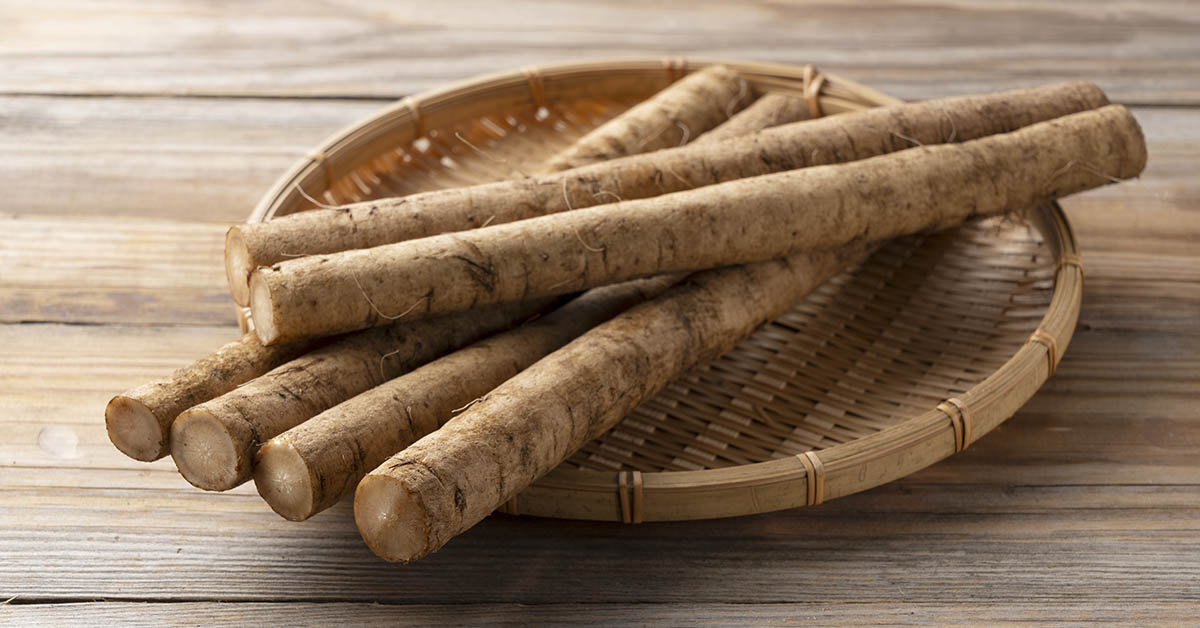Have you ever heard of the burdock plant? With some parts of the plant being edible, it has been used for a long time, both for food and medicine. While there are numerous benefits to the plant, the root of the burdock plant is arguably the most powerful part. This is everything you should know about this incredible root.
What Is Burdock Root? 9 Benefits of Burdock
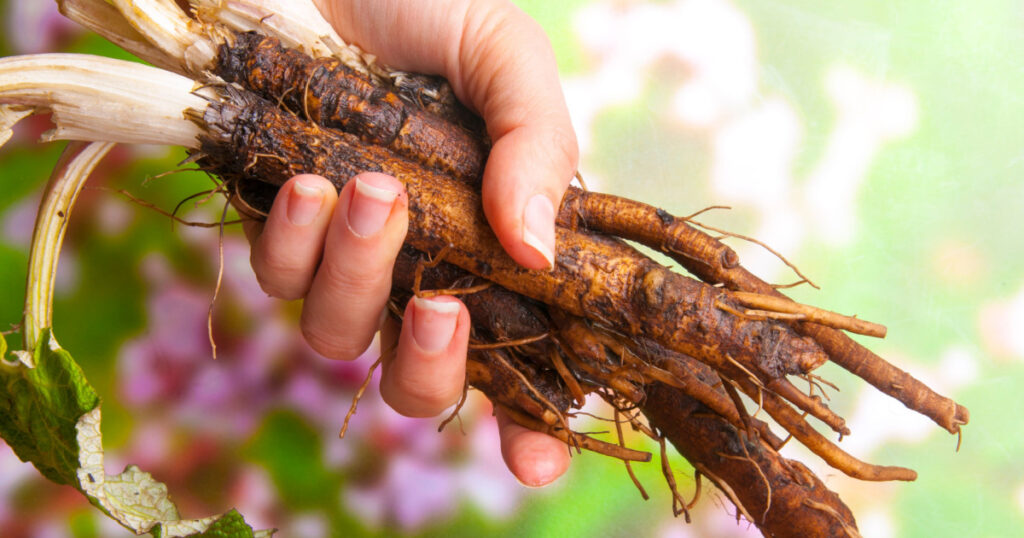
Burdock, also known as Arctium lappa, is a thistle-like plant that has been used for centuries as a medicinal herb. Native to Europe and Asia, burdock is now found worldwide and is revered for its potential health benefits. While there are plenty of potential benefits, there are also some side effects, risks, and drug interactions to be aware of. (1)
As already mentioned, there are some benefits that come along with the burdock root plant. It has been present in natural medicine for a long time for many different conditions. These are the most prominent of those.
1. Antioxidant properties

Burdock is packed with antioxidants that combat oxidative stress and protect the body from damage caused by free radicals. These antioxidants help reduce the risk of chronic diseases, such as heart disease and certain types of cancer. (2)
2. Skin health

Burdock has been traditionally used to treat various skin conditions, such as acne, eczema, and psoriasis. Its anti-inflammatory and antibacterial properties may help reduce inflammation, soothe irritation, and improve overall skin health. (3)
Read: Broadleaf Plantain: Unveiling the Marvels of Nature’s Medicinal Herb
3. Liver Aid
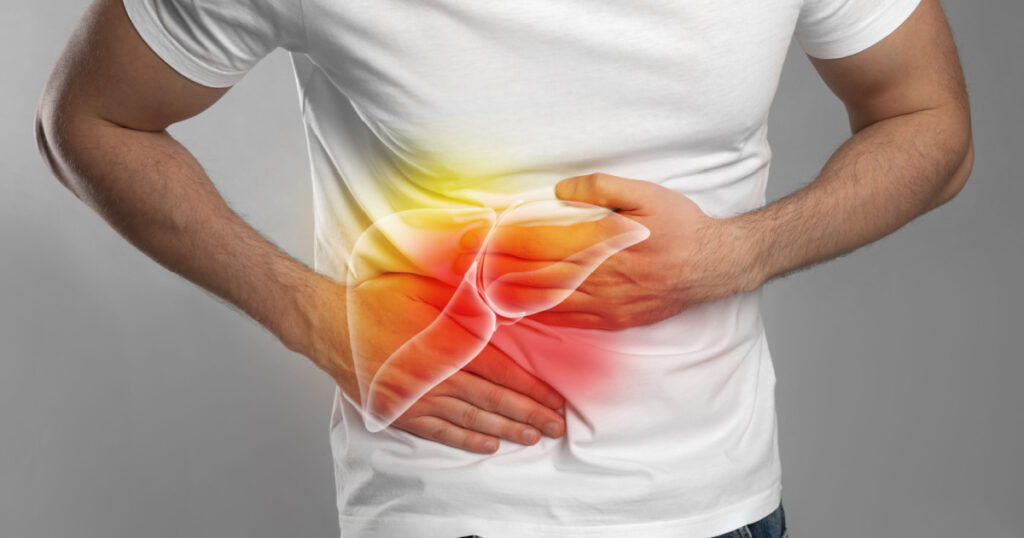
The liver’s primary function is to rid the body of toxins and waste it doesn’t need. Burdock is believed to help the liver with its job. It aids in eliminating toxins, purifies the blood, and supports liver function. (4)
4. Digestive Health

Burdock root contains dietary fiber that helps with digestion. It promotes regular bowel movements, prevents constipation, and supports a healthy digestive system. Additionally, burdock may help reduce bloating and improve nutrient absorption. (5)
5. May Help With Blood Sugar Control
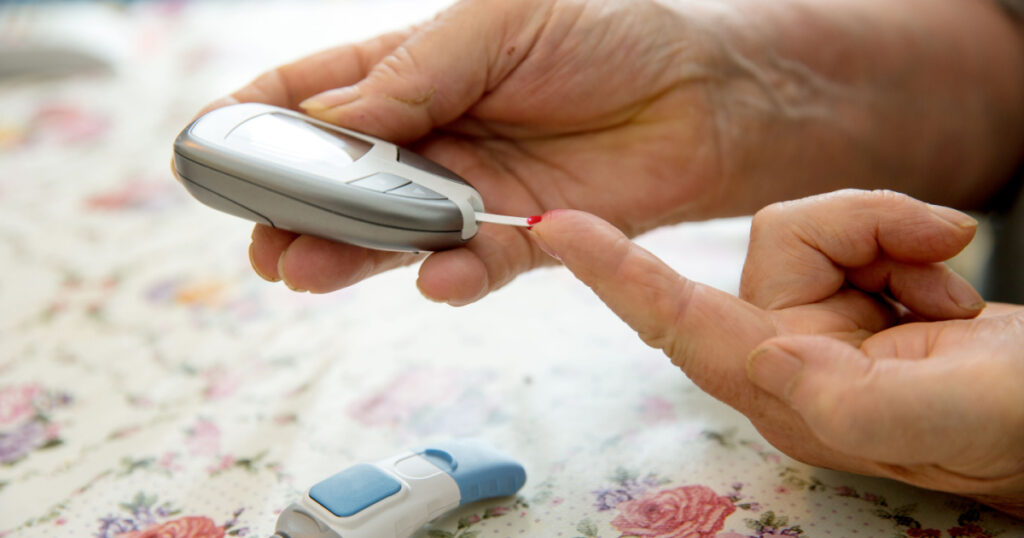
Studies suggest that burdock may help regulate blood sugar levels. It may improve insulin sensitivity and stimulate the production of insulin, making it beneficial for individuals with type II diabetes or those at risk of developing the condition. (6)
6. Anti-inflammatory effects
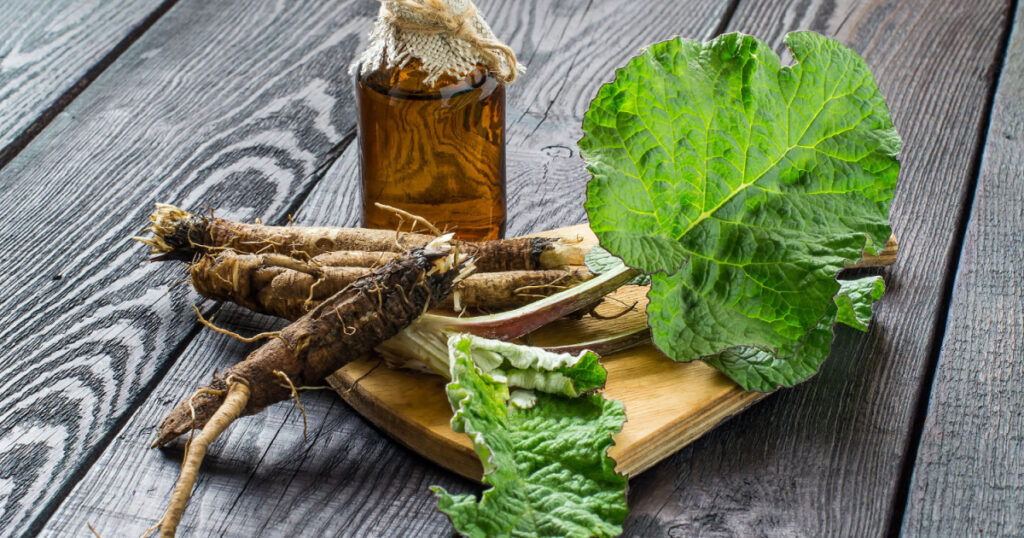
Burdock has been used in traditional medicine to reduce inflammation in the body. It may help alleviate symptoms of inflammatory conditions, such as arthritis and gout. (7)
7. Urinary tract health
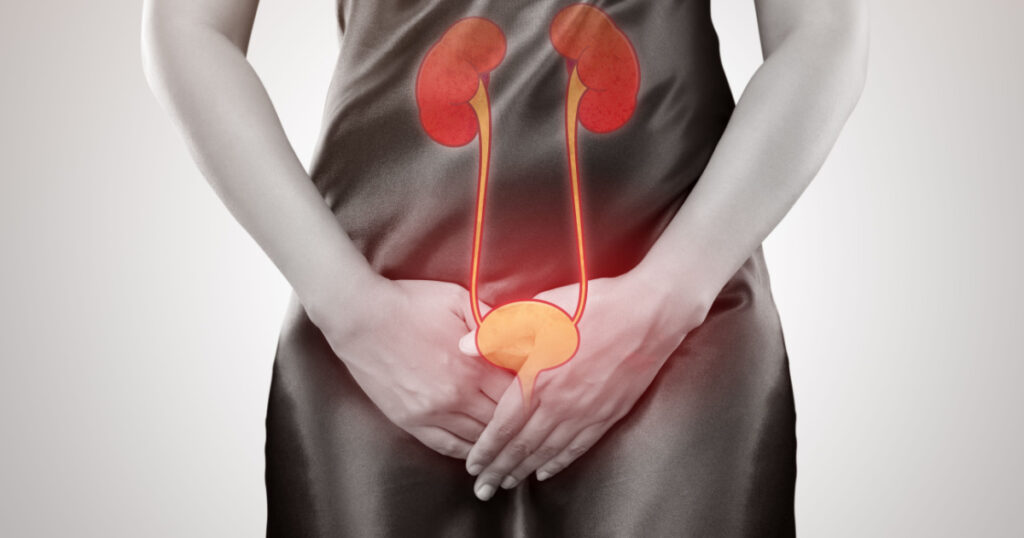
Burdock has diuretic properties, meaning it promotes urine production and helps flush out toxins from the urinary tract. This may be beneficial for individuals with urinary tract infections or kidney stones.
8. Immune system support

Burdock contains various vitamins and minerals that support a healthy immune system. It may increase the production of immune cells and enhance the body’s ability to fight off infections.
9. Anti-cancer potential

Some studies suggest that burdock may have anti-cancer properties. It contains certain compounds that inhibit the growth of cancer cells and may help prevent the formation of tumors. (8)
Read: From Pain Relief to Sleep: 6 Benefits of Wild Lettuce
Side Effects and Risks

While burdock is generally safe for consumption, it may cause some side effects in certain individuals. These side effects can include allergic reactions, contact dermatitis, and gastrointestinal issues like diarrhea or an upset stomach. If you experience any adverse reactions after consuming burdock, it is advisable to discontinue use and consult with a healthcare professional. Additionally, pregnant women, breastfeeding women, and individuals with certain medical conditions should exercise caution when using burdock, and it is recommended to seek medical advice before starting any new herbal supplement.
Drug Interactions

Burdock may interact with certain medications, so it’s important to consult with a healthcare professional before using it alongside prescription drugs. Burdock may have potential interactions with anticoagulant medications, diuretics, and diabetes medications. As a precaution, it is crucial to inform your healthcare provider about any herbal supplements or alternative treatments you are using to avoid any potential adverse interactions.
The Bottom Line
Burdock is a versatile herb that offers numerous potential health benefits, especially related to antioxidant activity, skin health, detoxification, and digestive health. However, like any herbal supplement, it is important to use burdock responsibly, be aware of any potential side effects, and consider possible drug interactions. Always consult with a healthcare professional before incorporating burdock into your routine to ensure it is suitable for your individual health needs.
Keep Reading: 8 Benefits of Including Celery in Your Diet
Sources
- “Contact dermatitis as an adverse reaction to some topically used European herbal medicinal products – part 1: Achillea millefolium–Curcuma longa.” Wiley. Gioacchino Calapai, et al. March 2014.
- “Metabolic profile of the bioactive compounds of burdock (Arctium lappa) seeds, roots and leaves.” Science Direct. Rosalia Ferracane, et al. January 2010.
- “Observational study of Arctium lappa in the treatment of acne vulgaris.” Pubmed. Anjali Miglani and Raj K Manchanda. July 2014.
- “A review of the pharmacological effects of Arctium lappa (burdock).” Springer Link. Yuk-Shing Chan, et al. October 28, 2010.
- “Burdock.” Mount Sinai.
- “Antidiabetic, hypolipidemic and hepatoprotective effects of Arctium lappa root’s hydro-alcoholic extract on nicotinamide-streptozotocin induced type 2 model of diabetes in male mice.” NCBI. Akram Ahangarpour, et al. March- April 2017.
- “Using Burdock for Gout Relief and Prevention.” Gout Diet
- “Arctigenin Inhibits Liver Cancer Tumorigenesis by Inhibiting Gankyrin Expression via C/EBPα and PPARα.” NCBI. Ying Sun, et al. March 17, 2018.
Disclaimer: This information is not intended to be a substitute for professional medical advice, diagnosis or treatment and is for information only. Always seek the advice of your physician or another qualified health provider with any questions about your medical condition and/or current medication. Do not disregard professional medical advice or delay seeking advice or treatment because of something you have read here.
